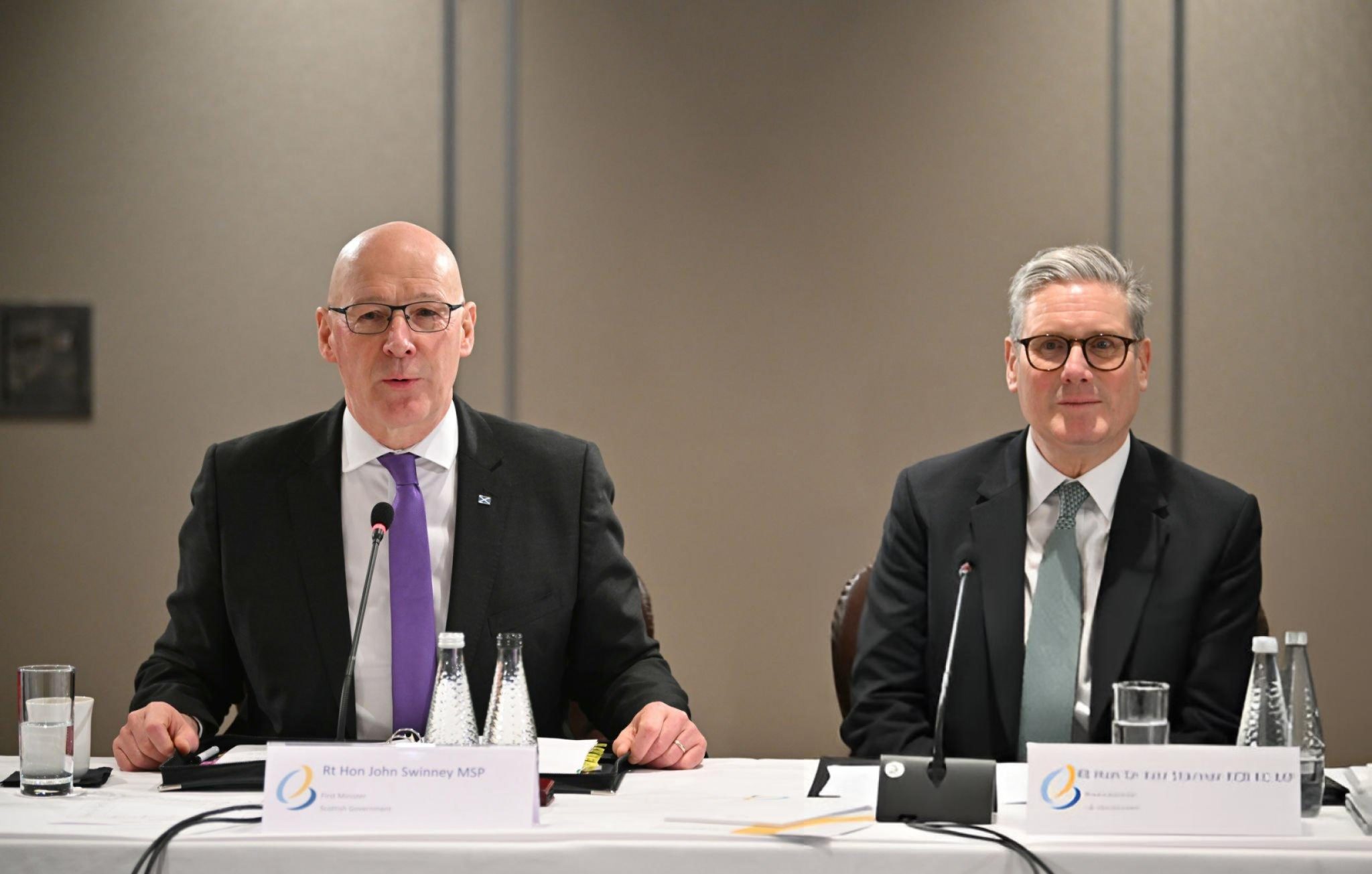Prime Minister Sir Keir Starmer met with Scottish First Minister John Swinney in London on Friday, as part of the second Council of Nations summit – a newly formed body aimed at fostering greater collaboration between the UK Government, devolved administrations, and English mayors.
Top of the agenda were pressing domestic and international matters, including post-Brexit trade opportunities, investment in green energy infrastructure, and efforts to address ongoing humanitarian crises in Ukraine and Gaza.
The meeting comes amid heightened political focus on how devolved nations will benefit from recently agreed UK trade deals with the United States, the European Union, and India. Sir Keir has said these deals will bring “long-term security” and boost prosperity across all parts of the United Kingdom.
A spokesperson for Mr Swinney confirmed that trade was among the “key issues” discussed in private talks with the Prime Minister, alongside economic growth strategies, social welfare policies, and climate-related infrastructure.
“The First Minister held talks with the Prime Minister where they discussed key issues, including tackling child poverty, migration and growing the economy – not least by investing in Grangemouth, carbon capture and Project Acorn,” the spokesperson said.
The closure of the Grangemouth oil refinery earlier this year has sparked concern about regional job losses and energy security. Mr Swinney is pushing for renewed investment in carbon capture and storage (CCS) technologies, especially through the long-awaited Project Acorn initiative, to help future-proof Scotland’s energy sector while meeting climate commitments.
Talks also touched on ongoing conflicts in Ukraine and Gaza, with both leaders agreeing on the urgent need for diplomatic resolution and greater humanitarian support. According to Mr Swinney’s office, both parties recognised the responsibility the UK shares in championing peace and ensuring assistance reaches those affected by war.
The Council of Nations was introduced by Sir Keir as a forum to foster greater cohesion between the devolved governments and Westminster. Friday’s session saw senior representatives from all UK nations and regions come together for joint discussions in London.
Mr Swinney also held bilateral meetings with the First Minister of Wales and the First Minister and Deputy First Minister of Northern Ireland. A spokesperson said the talks were productive and focused on “areas of common concern,” particularly in public health, economic development, and rural support.
Speaking ahead of the summit, Sir Keir emphasised the economic potential of the UK’s new trade deals and the benefits they would bring to all regions.
“These agreements will create opportunities for more seamless trade and attract inward investment to grow the economy,” he said. “These changes will be felt everywhere – whether it’s lower food prices at the checkout, more choice for consumers, or higher living standards that will improve livelihoods.”
The UK Government has pointed to tangible benefits for producers across the four nations. Scottish goods such as whisky, salmon, and gin are expected to benefit from reduced tariffs and eased trade barriers under the EU and US arrangements.
Welsh farmers, particularly lamb producers, are set to profit from India’s decision to eliminate longstanding lamb tariffs. Meanwhile, Northern Irish distillers will benefit from a phased reduction in whiskey export tariffs to India – falling from 150% to 75%, and then to 40% over the next decade.
While Friday’s talks stopped short of firm commitments, both leaders described the meeting as constructive. The Prime Minister’s office said future summits would continue to build on this collaborative approach, with a renewed emphasis on shared growth and regional equality.
As the political landscape shifts post-Brexit, the Council of Nations appears set to play an increasingly important role in shaping how the UK navigates its global partnerships while ensuring that devolved governments have a say in matters affecting their nations directly.






